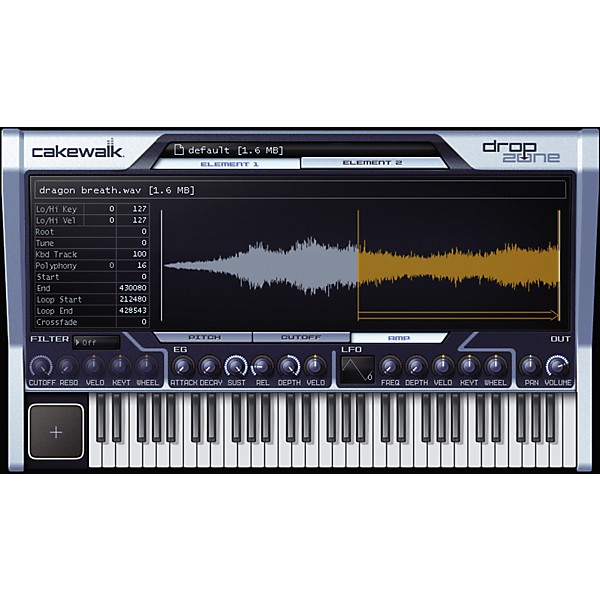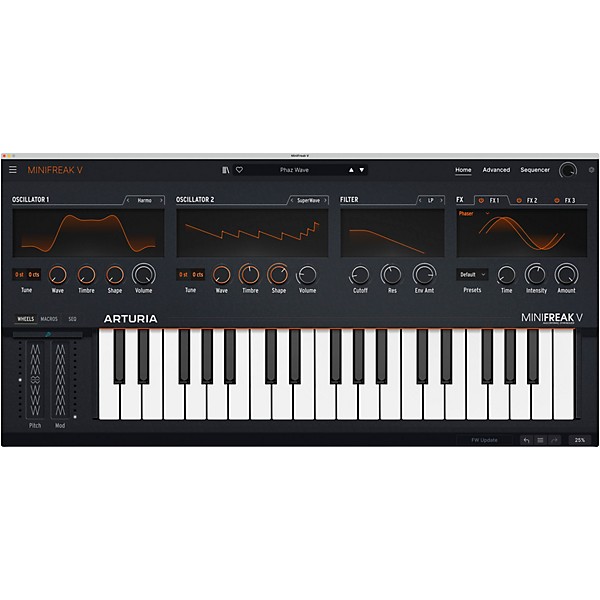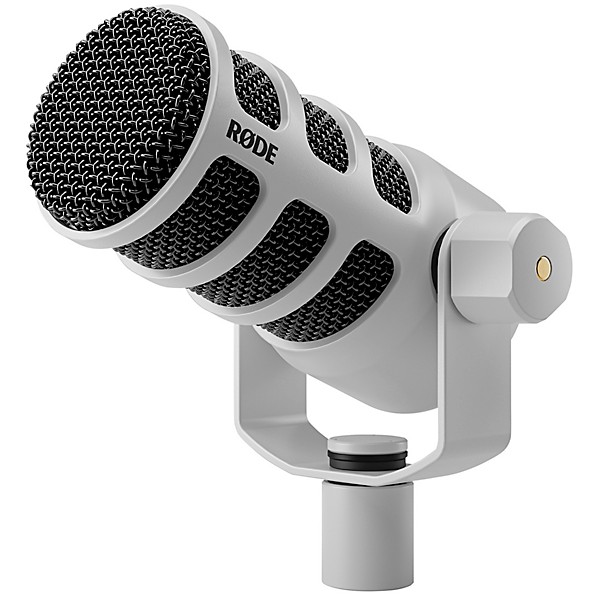Revolutionizing DJ Hardware: The Ultimate Showdown between REV7, XDJ-200 & XDJ-400 for Unbeatable Performance
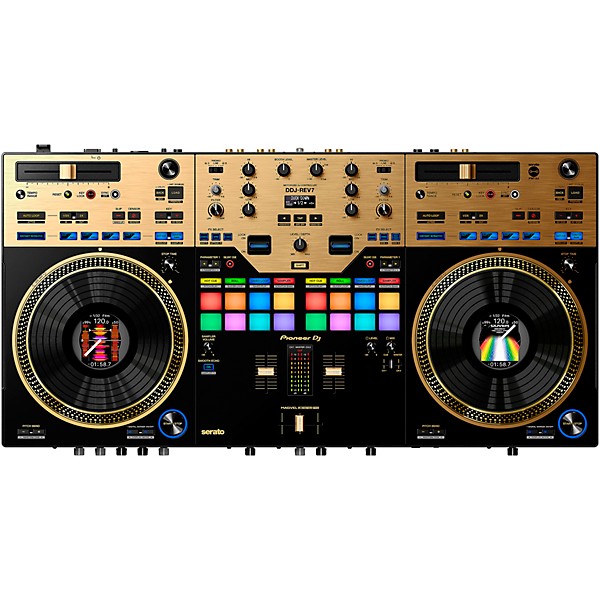
Introduction
Every DJ—whether just starting out or already commanding packed dancefloors—faces the daunting challenge of picking the perfect piece of gear to fuel their sets and growth. With so many options, conflicting reviews, and industry jargon, finding "the one" controller can feel as overwhelming as navigating a crowd that's just asked for three different genres in five minutes. Choosing the wrong hardware isn't just a financial setback—it can hold back your artistic vision and sap your motivation.
This article is here to cut through the confusion. Maybe you're hunting for pro features with a club feel, or maybe you need something that fits in your bag for impromptu parties. Whatever your needs, we’ll dive deep into the real-world strengths and weaknesses of the REV7 DJ Controller, the portable Pioneer XDJ-200, and the versatile XDJ-400. Each model carves out a unique place in the DJ journey, and by the end, you’ll see exactly which one deserves a spot in your setup.
We've structured this breakdown for honesty, relevance, and utility. No fluff—just the facts seasoned with real gig and practice experience. Whether you’re planning your first beatmatch, prepping a complex scratch routine, or just want a versatile party weapon, your best gear investment starts right here.

Key Features & Benefits
REV7 DJ Controller Review: Motorized Performance, Modern Workflow
For DJs after that vinyl-inspired tactile excitement, the REV7 DJ Controller stands out with its 7-inch, motorized platters and intelligent digital workflow. Its battle-style layout is borrowed from pro turntablism, bringing true spinning inertia under your fingers—a must for anyone who wants to move beyond basic mixing into high-energy scratches and real-time creative performance. Compared to smaller entry-level controllers, the REV7 bridges the gap between analog authenticity and digital power, so setbacks like drifting beats or missed cue points are far less likely.
- 7" motorized jog wheels with integrated full-color on-jog display, giving instant access to track positions and waveforms
- Full-sized pro layout emulating classic turntable setups, perfect for advanced transitions and battle mixes
- Tight integration with both Serato DJ Pro and Rekordbox, enabling seamless software control and real plug-and-play usability
- Robust onboard FX section with satisfying hardware lever paddles for creative, momentary effects
- Multiple display modes: see waveforms, BPM, and cue points without looking up from the decks
Usage tip: The corked jog wheels replicate real turntable resistance—excellent for performance accuracy but they do collect fingerprints quickly. Keep a microfiber cloth in your gig bag, especially before heading on stage or when demonstrating scratch routines to an audience.
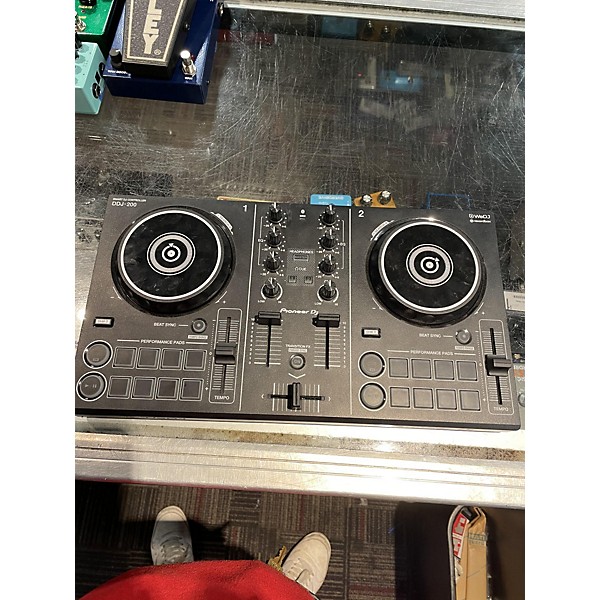
Pioneer XDJ-200 Review: Pocket-Sized Wireless Freedom
Lightweight, travel-friendly, and wireless by design, the Pioneer XDJ-200 (DDJ-200) allows DJs to throw down sets anywhere, from pop-up events to cozy house parties. By connecting quickly to your smartphone, tablet, or laptop via Bluetooth, it removes the typical tangle of wires and setup stress. Since it works seamlessly with popular DJ apps—including WeDJ and rekordbox mobile—there’s no need to battle with drivers or drag around music files; just access playlists stored online or locally for non-stop inspiration.
- Ultra lightweight and compact: fits in almost any backpack or messenger bag for true mobility
- Wireless Bluetooth connection: instantly pairs with mobile devices—great for spur-of-the-moment sessions
- Simplified two-channel mixing: intuitive for beginners, yet functional enough for quick blends and basic scratching
- Flexible USB power: run off a battery pack or plug into your laptop, no wall sockets necessary
- Full support for streaming platforms: DJ from Beatport, SoundCloud, or even Spotify with compatible apps
Usage tip: For stress-free house parties or traveling gigs, bring the XDJ-200 and a pocket power bank. There's no need to worry about running out of juice—just be sure you download your playlists for offline use to avoid awkward silence if Wi-Fi drops.
Pioneer XDJ-400 Review: Bedroom Studio to Small Venues
The XDJ-400 (more commonly called DDJ-400) offers a bridge between casual home mixing and professional workflows. With a club-inspired layout and tactile controls, it’s designed for education and progression. Whether you’re learning the fundamentals of EQ, developing tight transitions, or exploring performance modes, the XDJ-400 introduces advanced concepts in an approachable way. It’s robust enough for light travel and reliable for regular practice, making it a favourite among up-and-coming DJs and weekend warriors alike.
- Two independent decks, each with eight RGB-lit performance pads for flexible cue points and live remixing
- Standard three-band EQ and dedicated filter/color knob per channel, matching pro gear logic
- Bundled full Rekordbox license unlocks all educational features and creative performance tools
- Sensitive, medium-sized jog wheels: excellent for learning beatmatching and baby scratches
- Built tough, yet easy to transport—survives regular setup/tear-down, bedroom practice, or bar gigs
Usage tip: Use the built-in Rekordbox tutorials to pace your learning. The DDJ-400’s hardware matches the visual cues in the software, making it easier than ever to understand cue, loop, and effect basics without getting overwhelmed.

DDJ-FLX4 Controller: Flexible Entry Point for Modern DJs
Though not the headline act in this showdown, the Pioneer DDJ-FLX4 deserves spotlight as a top-tier alternative for modern, value-conscious DJs. Its design blends essential pro features with flexibility, supporting both Rekordbox and Serato right out of the box. With upgraded jog wheels and easy-to-use performance pads, the DDJ-FLX4 welcomes both new learners and those ready to take on creative mixing, all within a budget-friendly and portable package.
- Jog wheels are responsive and a notch above typical entry-level controllers in feel and accuracy
- Supports both Rekordbox and Serato DJ Lite by default: no additional software purchases needed
- 8 RGB performance pads per deck for hot cues, samples, and performance tricks
- Simple, robust layout: approachable for beginners, yet powerful for intermediate mixing styles
- Lightweight and compact design, ideal for at-home practice or gigging at small parties
Usage tip: Take advantage of the FLX4’s dual-software compatibility by experimenting with both Rekordbox and Serato—explore which workflow feels more intuitive before you commit to bigger investments or complex setups.
Comparison vs. Alternatives: Pioneer XDJ-200 Review Showdown
With the core contenders and a notable alternative now introduced, it’s time to see how they stack up head-to-head in the categories that matter most. Here’s a comparison table summarizing features, connectivity, size, and pricing—giving you an at-a-glance snapshot for choosing gear based on your unique priorities.
| Feature | REV7 DJ Controller | Pioneer XDJ-200 | Pioneer XDJ-400 | Alternate: DDJ-FLX4 |
|---|---|---|---|---|
| Jog Wheels | 7" Motorized, full-color display, vinyl feel | Small, static, compact | Medium, tactile, club-style | Medium, smooth, high-res |
| Device Integration | Serato/Rekordbox (Plug & Play USB) | Bluetooth, iOS/Android, Laptop apps | USB, Rekordbox (PC/Mac), bundled software | USB, Rekordbox and Serato Lite, cross-platform |
| Portability | Heavy, pro-level—needs a case for transport | Ultra slim and portable—true backpack gear | Compact but not pocket-sized; best for desktop | Lightweight, napkin-sized, easy carry |
| Performance Pads | 16 RGB, battle-style, highly tactile | 8 basic, enough for starter cues/samples | 8 RGB per deck for cues & samples | 8 RGB per deck, robust for entry-level |
| Built-in FX | Rich: paddles, customizable, direct access | Basic, app-controlled (via mobile software) | Rekordbox-integrated, versatile | Hardware color and performance FX |
| Price Range | High-end, flagship investment | Affordable, lowest-priced of the group | Mid-range, accessible to most serious beginners | Entry- to mid-level (budget-friendly, modern) |
The REV7 stands alone at the top for advanced tactile control and pro durability, but its weight and price reflect those ambitions. The XDJ-200 takes mobility and wireless ease further than any other DJ controller on the list—making it unbeatable for spontaneous parties or portable practice. Meanwhile, the XDJ-400 offers a skill-building bridge to club equipment and is equally at home in bedrooms or gig bags. Finally, the DDJ-FLX4’s software flexibility and thoughtful layout make it a superb choice for new DJs who are undecided between Rekordbox and Serato ecosystems.
All four options address common pain points—whether it’s the feel of real platters, frustration-free setup, or growth toward professional DJing. By mapping out which features matter most for your musical journey, you can make a long-term investment rather than a fleeting purchase.
Pros & Cons
REV7 DJ Controller
- Pros:
- Industry-leading motorized platters simulate vinyl with unparalleled realism
- On-jog displays keep crucial track information right beneath your fingertips
- Battle-style layout and premium build quality stand up to relentless gig use
- Seamless integration with Serato and Rekordbox—minimal technical hassle
- Extensive FX control and paddles foster creativity and spontaneous set energy
- Cons:
- Larger and heavier than most controllers; not ideal for traveling light
- Requires bigger investment—priced for pros and committed hobbyists
- Advanced features are best leveraged by those with intermediate/advanced skills, making the learning curve a bit steeper for true beginners
Pioneer XDJ-200
- Pros:
- Ultra-portable and light, perfect for mobile DJs and casual events
- Bluetooth connectivity enables true wireless mixing from phones and tablets
- Simple design makes it the easiest stepping stone for absolute beginners
- Compatible with streaming services for instant music access
- Costs a fraction compared to advanced controllers—easy on the wallet
- Cons:
- Plastic construction feels fragile; not ideal for rough gig environments
- Lacks dedicated audio outputs; needs splitter or workaround for proper cueing
- Limited on performance features—may be outgrown quickly as skills improve
Pioneer XDJ-400
- Pros:
- Club-style controls closely replicate pro Pioneer DJ mixers and decks
- Solid build quality—durable for regular practice and light gigging
- Bundled full Rekordbox license covers all learning and performance needs
- Performance pads and jog wheels respond well for learning beatmatching and effects
- Strong cost-to-feature ratio for progressing students and home studios
- Cons:
- Requires connection to a laptop; not wireless or app-based
- Still more expensive than some absolute entry-level options
- Some may find the faders a bit stiff out of the box
DDJ-FLX4
- Pros:
- Dual-software support (Rekordbox and Serato Lite) maximizes flexibility
- Performance pads and jog wheels deliver a satisfying mix experience
- Compact, lightweight, and affordable for its range of features
- Easy setup process—great for those who want minimal fuss
- Ideal entry-point for those unsure of their future DJ software preference
- Cons:
- Not as robust or feature-rich as flagship models
- Mostly plastic construction may feel “toy-like” to some
- No motorized platters; scratch feel is limited compared to REV7
Conclusion
There’s no single “winner”—only the best match for your ambitions, workflow, and music spaces.
Yearning for that real vinyl feedback and ready to commit to learning (or perfecting) tactile DJ tricks? The REV7 will make you feel at home, whether you’re beat-juggling or scratching with intent. The investment in both money and learning time is significant, but so is the payoff in creative freedom and performance comfort.
If you want hassle-free mobility and the opportunity to spin tunes wherever you land, without being tied to a laptop or elaborate setup, the XDJ-200 is a marvel of portable DJing—unbeatable for small parties and quick jams among friends. For a controller that teaches as you grow and keeps you in the ecosystem of club-standard workflows, the XDJ-400 is a time-tested favorite (and can even handle your first paid gigs).
The DDJ-FLX4, though an alternative here, emerges as a strong pick for anyone new who wants long-term value and software flexibility, especially if you haven’t settled into a preferred platform yet.
So: ask yourself what gigs you aspire to play, what skills you crave, and how portable you need to be. Your motivation and circumstances are unique—the best controller is the one that lets you play more, stress less, and steadily become the DJ you set out to be.
FAQs
Is the REV7 hard to use for beginners?
While the REV7 offers outstanding features for advanced performance, it does have a steeper learning curve than most entry-level controllers. It’s designed for intermediate to pro DJs seeking genuine turntable emulation, so if you’re just starting and feel overwhelmed, consider spending time on a simpler controller before leveling up.
Can the Pioneer XDJ-200 connect wirelessly?
Absolutely! The XDJ-200 pairs with smartphones, tablets, and some laptops via Bluetooth. You can control the music through DJ apps and use streaming services, all without plugging in a single cable—making it truly wireless.
Does the XDJ-400 work with Serato?
The XDJ-400 is designed around Rekordbox DJ and doesn’t officially support Serato. If you’re committed to Serato, the DDJ-FLX4 is a strong alternative since it offers native compatibility with both Serato and Rekordbox out of the box.
Which controller is best for learning to scratch?
Hands-down, the REV7 is the top pick for budding scratch artists. Its motorized platters replicate the inertia and response of vinyl records, letting you practice and perform complex scratch routines just like on traditional turntables. None of the other controllers in this comparison offer the same dedicated scratching experience.
What accessories should I pair with these controllers?
For the REV7, invest in quality headphones and a rugged flight case or gig bag for protection. The XDJ-200 works best with a portable speaker and a phone or tablet stand. The XDJ-400 and DDJ-FLX4 benefit from powered monitors and a laptop stand for comfortable practice and performance.
How durable are these controllers for travel or club use?
REV7 is designed for pro stages and heavy use, but always transport it in a hard case due to its weight and size. The DDJ-400 offers reliable durability for regular moving, but avoid heavy drops. XDJ-200 is much less sturdy—best kept for home or careful transport, while DDJ-FLX4 offers good durability for its price bracket.
Can I DJ without a laptop on any of these controllers?
The XDJ-200 is best suited for laptop-free DJing thanks to its direct smartphone/tablet compatibility via Bluetooth and mobile apps. The other controllers still require a computer for full performance and audio routing.

